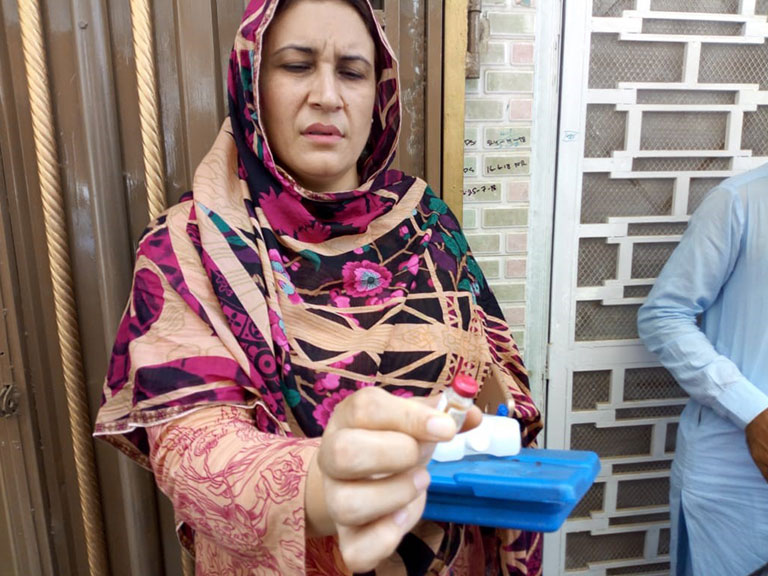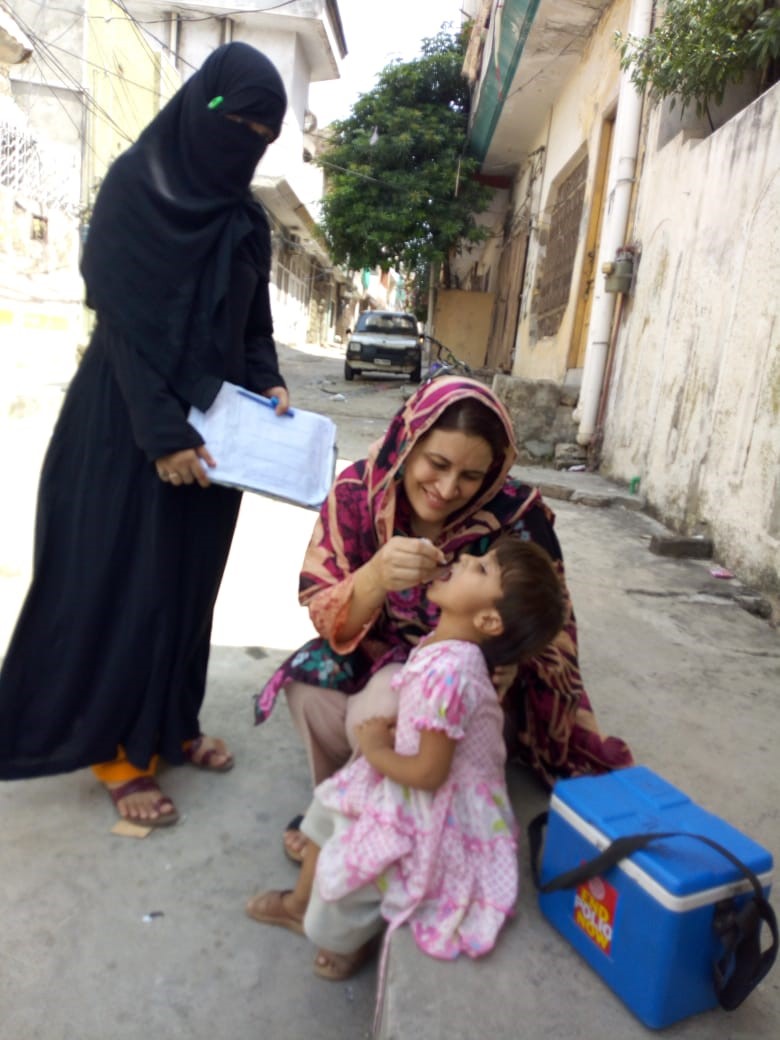Polio vaccination teams comprise of two members; a male and a female. But in high-risk union councils of Rawalpindi, a third member joins them regularly to make parents aware of the risk to their under five children if not vaccinated. Wearing her traditional dress and draped in dupatta (shawl-like scarf), she moves with polio teams from one street to another, like every woman running errands. But this exemplary gesture makes her anything but ordinary woman as she is on a noble mission.
Over time, Dr. Uzma Khan, who has been a District Health Officer in Rawalpindi, has proved herself a good negotiator and a supportive team member. With her kind and reassuring voice, she is being reckoned as Sister Teresa of Rawalpindi.
Giving up the comfort and luxury of her office in a posh locality, Dr. Uzma joins polio teams in the field to convince the parents that polio vaccine was the only recourse to saving their children from the crippling disease.

I do not feel comfortable sitting in my office during polio campaigns especially when some places in your town are abuzz with misconceptions,” shares Dr. Uzma.
She has been upset with the reluctance of some parents to vaccinate their children. “The unvaccinated children are the main reason for virus circulation in Rawalpindi owing to the frequent movement of people who are already at high risk,” says Dr. Uzma.
Dr. Khan has good command over Pashto which helps her convince some guest parents from various parts of the country.
“While I was paying a visit to a house in a street, I saw some parents do not welcome polio teams despite the fact they were there to help save their children from a disease which could paralyse their children for life,” says Dr. Uzma.
“The woman behind the door said all children are asleep. I knocked again and introduced myself to the lady. I explained to the mother that not only her children, but all in the neighbourhood will continue to suffer from polio if remain unvaccinated in every campaign,” says Dr. Uzma.

“In the end, I managed to vaccinate nine children in the multi-storey building with multiple families,” shares Dr. Uzma.
During every polio campaign, thousands of guest children are deprived of vaccine all over Pakistan as well as Punjab due to parents’ reluctance and misconceptions leaving them as well as other children vulnerable.
“Persistent polio virus circulation in Rawalpindi represents existence of under-immunized children who miss vaccination during routine and door-to-door polio campaigns. The missed children pose a risk for themselves as well as other children around them by shedding virus in sewerage systems,” explains Dr. Uzma Khan.
With more than 850,000 under five children and continuous polio virus circulation, Rawalpindi is one of those districts in Punjab which are considered highly challenging and vulnerable.
It also shares border with Khyber Pakhtunkhwa province where most of the polio cases reported in 2018 came from. Families living in Rawalpindi frequently travel to the districts reporting polio cases.
Punjab province has shown significant progress in poliovirus interruption for the last two years. The last polio case from Punjab was reported in 2017 while 2016 went without a single case. However, the health authorities believe that such wide scale and frequent population movement from Rawalpindi to other parts of the country as well as Afghanistan may result in polio outbreak in this part of Punjab, which could seriously jeopardise Punjab’s polio eradication efforts.
Of all the 12 cases reported in 2018, none has been reported in Punjab. But persistent positive environmental samples in Rawalpindi as well as Lahore indicate that fight is just not over yet.
